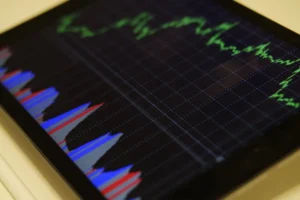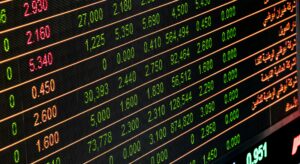In the dynamic world of Forex trading, making informed decisions is crucial. You may have found yourself wondering “What are Forex Signals?”. Well, one of the most valuable tools at a trader’s disposal is the Forex signal. Whether you’re a beginner or an experienced trader, understanding how to use Forex signals can significantly enhance your trading strategy.
In this article, we’ll delve into what Forex signals are, how they work, and how you can utilize them effectively. I’ll also share my personal experience using Forex signals including insights I gained in August 2024. Plus, you’ll find a link to a detailed review of the Exness Forex broker for further reading.
What are Forex Signals?
A Forex signal is essentially a recommendation for entering a trade on a currency pair, typically at a specific price and time. These signals are generated based on market analysis and can be delivered through various channels, such as SMS, email, or directly within trading platforms like Exness.
Components of a Forex Signal
Forex signals typically include several key pieces of information:
- Currency Pair: The specific currency pair to trade (e.g., EUR/USD).
- Entry Price: The suggested price at which to enter the trade.
- Stop-Loss: A predefined price level at which the trade will be closed if the market moves against the position, limiting potential losses.
- Take-Profit: A target price level at which the trade will be closed to secure profits.
- Direction: Indicates whether to buy or sell the currency pair.
These components are essential in helping traders execute trades with a clear strategy, reducing the guesswork often involved in Forex trading.
How Forex Signals Work
Forex signals are typically generated by professional traders, market analysts, or automated trading systems based on technical analysis, fundamental analysis, or a combination of both. Here’s a breakdown of the processes involved in generating Forex signals:
1. Technical Analysis
Many Forex signals are based on technical analysis, which involves studying historical price data and chart patterns to predict future price movements. Indicators such as Moving Averages, Relative Strength Index (RSI), and Bollinger Bands are commonly used to identify potential trading opportunities.
For instance, if the RSI indicates that a currency pair is oversold, a Forex signal might be generated to buy that pair, expecting a price reversal.
2. Fundamental Analysis
Fundamental analysis involves evaluating economic indicators, geopolitical events, and other factors that can influence currency prices. Forex signals generated from fundamental analysis might focus on key economic events, such as interest rate decisions, employment reports, or GDP growth data.
For example, if a central bank is expected to raise interest rates, a Forex signal might recommend buying that country’s currency, anticipating that higher interest rates will attract more investment.
3. Automated Trading Systems
Some Forex signals are generated by automated trading systems, also known as trading bots or Expert Advisors (EAs). These systems use algorithms to analyze market conditions and generate signals based on predefined criteria. Automated systems can quickly process vast amounts of data, making them effective in fast-moving markets.
Example: Using Forex Signals on the Exness Platform
When I started exploring Forex signals on the Exness platform in August 2024, I was particularly impressed by how seamlessly the signals were integrated into the trading experience. Exness offers a user-friendly interface where traders can access signals directly within the platform, making it easy to implement them into their trading strategies.
Step-by-Step Guide to Using Forex Signals on Exness
- Sign Up and Log In: If you haven’t already, sign up for an account on Exness.com. Once your account is set up, log in to access the trading platform.
- Access the Signals Section: On the Exness platform, there is a dedicated section for Forex signals. Here, you can find real-time signals provided by professional analysts.
- Select a Signal: Choose a signal that aligns with your trading strategy. For example, you might see a signal to buy EUR/USD at a specific price with a recommended stop-loss and take-profit level.
- Implement the Signal: Once you’ve selected a signal, you can directly implement it by placing the trade on the Exness platform. The platform allows you to customize the trade parameters, such as adjusting the stop-loss or take-profit levels according to your risk tolerance.
- Monitor the Trade: After placing the trade, monitor its progress. Exness provides tools for tracking your open positions and receiving updates if the market conditions change.
My Experience with Exness Forex Signals
During my time using Exness Forex signals, I found them particularly useful for short-term trades. For instance, in mid-August 2024, I received a signal to sell GBP/USD due to expected negative economic data from the UK. I followed the signal, setting my entry point, stop-loss, and take-profit as recommended. The trade was successful, and I was able to close it with a profit as the market moved in the predicted direction.
What impressed me the most was the accuracy of the signals and how easy it was to execute trades on the Exness platform. The integration of signals within the platform, combined with the advanced charting tools available, made the entire process smooth and efficient.
Benefits of Using Forex Signals
1. Time-Saving
One of the primary benefits of using Forex signals is that they save time. Instead of spending hours analyzing the market, traders can rely on signals generated by professionals or automated systems to make quick decisions.
2. Access to Expertise
For novice traders, Forex signals offer access to the expertise of seasoned professionals. This can be particularly valuable in volatile markets where experience and knowledge play a crucial role in making profitable trades.
3. Improved Trading Accuracy
By following well-analyzed signals, traders can improve their trading accuracy. Signals provide specific entry and exit points, reducing the likelihood of making emotional or impulsive decisions.
4. Learning Opportunity
For beginners, using Forex signals can also serve as a learning tool. By studying the signals and understanding the rationale behind them, traders can enhance their knowledge of Forex trading strategies and market analysis.
Potential Risks of Forex Signals
While Forex signals offer numerous benefits, it’s essential to be aware of the potential risks:
1. Reliance on Third-Party Analysis
Relying solely on Forex signals means depending on the analysis of others. If the analysis behind a signal is flawed, it could lead to losses. Therefore, it’s crucial to use signals as part of a broader trading strategy and not as the sole decision-making tool.
2. Market Volatility
The Forex market is highly volatile, and even the best signals can’t guarantee success. Sudden market shifts due to unexpected news or events can render a signal ineffective, leading to potential losses.
3. Overtrading
Receiving frequent signals might tempt traders to overtrade, which can increase transaction costs and expose them to higher risk. It’s essential to be selective and only act on signals that align with your overall trading plan.
Choosing the Right Forex Signals
Not all Forex signals are created equal. Here are some factors to consider when choosing a signal provider:
1. Reputation and Reliability
Look for signal providers with a strong reputation and a proven track record. User reviews and performance statistics can provide valuable insights into the reliability of a signal service.
2. Transparency
A good signal provider should be transparent about how their signals are generated. Understanding the methodology behind the signals can help you assess their credibility.
3. Real-Time Delivery
Forex signals are only useful if delivered in real-time. Ensure that the signal provider offers instant notifications through SMS, email, or direct platform alerts.
4. Trial Period
Many signal providers offer a trial period or a money-back guarantee. This allows you to test the service before committing to a subscription.
Conclusion
Forex signals can be a powerful tool in your trading arsenal, offering time-saving insights and expert analysis to guide your trades. Platforms like Exness, Plus500 and XM make it easy to access and implement these signals, enhancing your trading experience. As I experienced in August 2024, using Forex signals on the Exness platform can lead to successful trades, particularly when combined with a sound trading strategy and proper risk management.
For those interested in exploring the Exness platform further, including detailed insights into its features, I recommend reading the comprehensive Exness platform review on RankedForex.com. This review provides an in-depth analysis of Exness, making it easier to determine if it’s the right broker for your trading needs.
Remember, while Forex signals can enhance your trading accuracy, they should be used as part of a well-rounded trading strategy. Stay informed, manage your risk, and continue learning to maximize your success in the Forex market.










